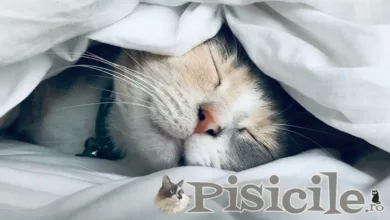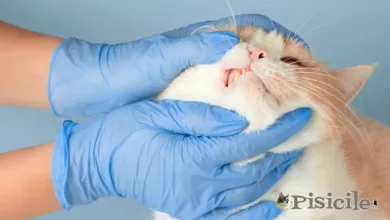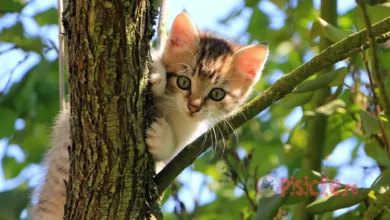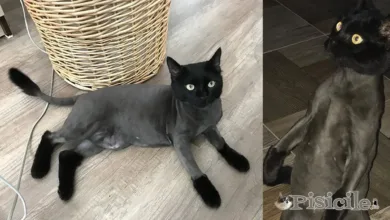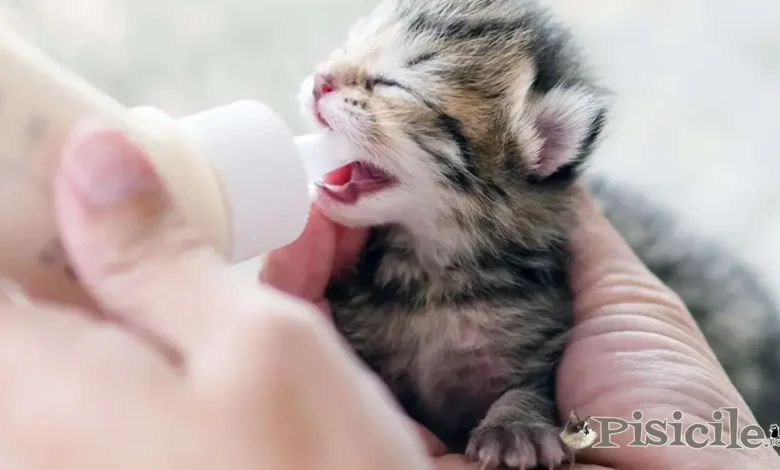
You are in the situation where you have an orphaned kitten that cannot feed itself, and knowing how to care for infant kittens is absolutely necessary to give them a chance at life.
First of all, we need to clarify two aspects:
1. If you find kittens a few days old that are in good condition, are clean, do not appear to be weak or dehydrated, those kittens are most likely not orphans. The mother cat is somewhere nearby. This applies if you do not have information about the condition of the mother cat.
It is good to watch for a while to see if the cat appears from somewhere. It is not advisable to leave kittens without shelter even if they seem to be in good condition.
2. Most kittens just a few days old are abandoned by humans (if we can call them that). They are found thrown in containers, wrapped in plastic bags or, in the happiest case (if I can call it that), they are left in a box in a trafficked place.
Now let's see some useful tips on what to do if you have found an infant kitten and want to care for it.
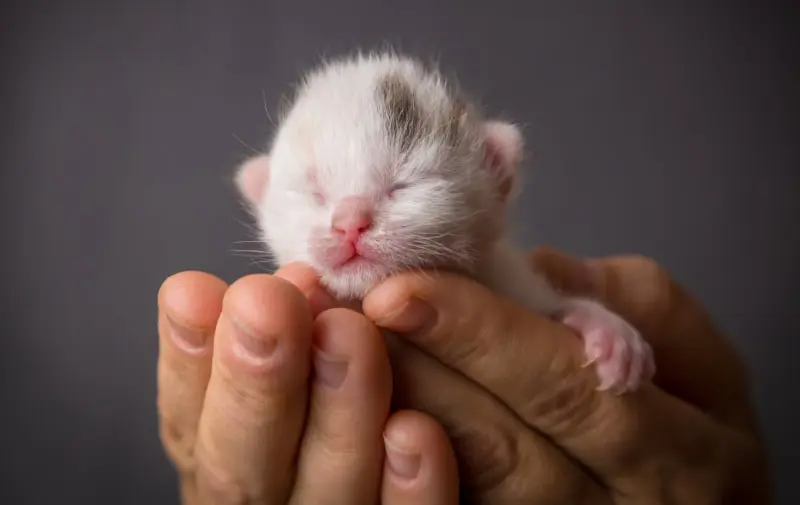
Subject
How do you care for orphaned infant kittens?
The first tip is to take the kittens to the nearest veterinary clinic. The medical staff will best teach you how to care for kittens. In addition, a medical examination can be performed to determine possible health problems.
If you are not near a veterinary practice and, for various reasons, you cannot seek specialist help, you should consider the following aspects.
Maintain the kitten's normal temperature
Infant kittens mustto be dry and with a normal body temperature. If the chickens are wet or it's cold outside, the first thing you have to do is to warm the kittens.
A cat's normal body temperature should be slightly higher than a human's. That is, somewhere at a minimum 38°C and 39.3°C. The kittens of up to 3 weeks they cannot regulate their own temperature the body. Anyone who has or has had cats with small kittens knows that during the first 3 weeks the cat stays almost constantly with the kittens, and when she goes out to feed or defecate, she very quickly returns to the kittens. This is precisely the reason. In addition to nutrition, ensure an optimal temperature with your own body.
If the kitten is wet or cold outside, you need to warm it up before feeding it. Can be dried with a soft towel. To warm up, use a hot water bottle wrapped in a towel. Place the kitten in a blanket or soft towel along with the warm water bottle.
Be very careful not to suffocate it or expose it to too high a temperature. Give him room to breathe and to be able to change his position in the litter if he gets too hot.
If the chickens have been warmed but do not seem to be in good condition, it is most likely due to low blood sugar. Kittens that are not fed on time have very low blood sugar very quickly. You can use a few drops of glucose or a little plain water with 5% sugar or honey as an emergency measure. Honey can also be used to regulate the digestive tract. A pinch of honey in milk.
Proper feeding to care for infant kittens
Just like small children, kittens need to eat little and often. This means that primarily you will need to devote your time and attention almost constantly for the first 2 – 3 weeks. Don't worry though, because kittens still sleep. And I sleep a lot.
For feeding, the only food is milk. But not just any milk. Do not give kittens cow's milk, goat's milk or milk powder. At pet shops and veterinary pharmacies, you can find milk powder kits that contain special bottles for feeding baby kittens.
Be careful when you administer the milk. It should be slightly warm. You can test the temperature on your wrist, as is done in small children. Newborn kittens should be held with their chest up and not held like a baby, on their back, as the milk can reach the level of the trachea.
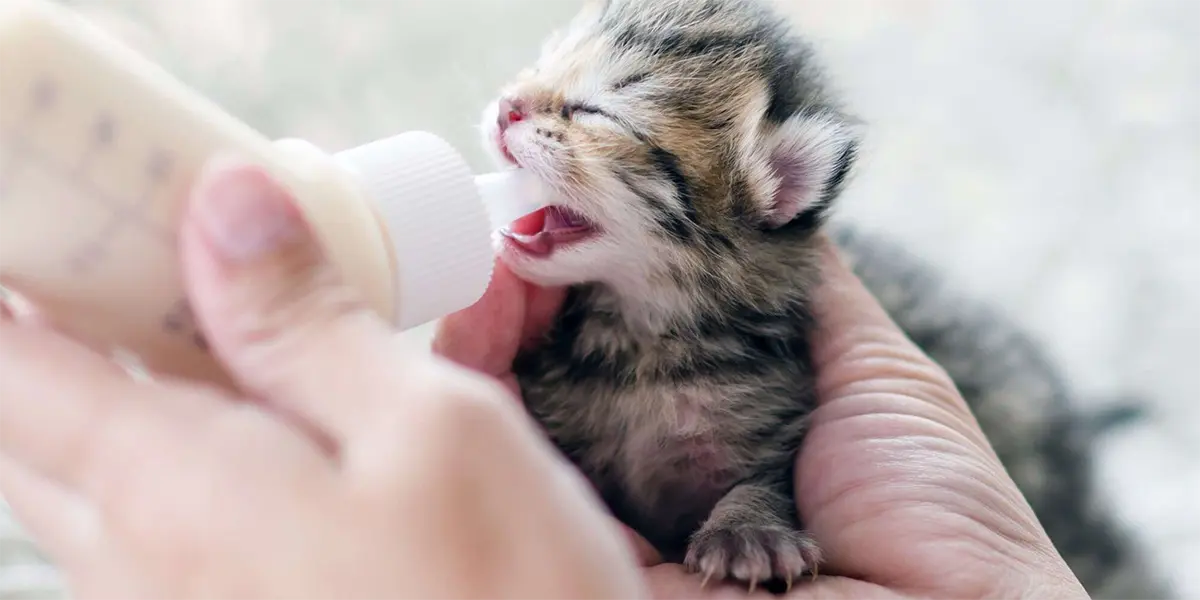
The portion of food is determined according to the age of the cat. In the first week, it is enough to give him between 2 and 4 ml of milk at each meal. In theory, feeding should be done at 2-hour intervals, including at night. Of course, there will be no drama if the kitten remains uneaten while you rest. After the first week, it is recommended that feeding be done approximately every 3-4 hours, gradually increasing the amount to 5-10 ml. From the third week, 5 meals a day are sufficient, with 10-15 ml of milk at each meal. After 4 weeks, the kittens should be fed according to how much each kitten wants. Do not overeat, as digestion problems and diarrhea may occur. Starting at 5 weeks of age, kittens begin to learn to eat on their own and wean off the bottle. Of course, all milk. It will take some time for their teeth to develop enough to bite into wet food. And the digestive system is not ready for such a thing either.
When they start eating on their own, at pet shops you can find a wide range of special food for kittens.
Recipes for feeding newborn kittens
For emergency situations, kittens can also be syringe fed in the corner of the mouth. Be careful not to hurt them!
If you don't have a veterinary pharmacy nearby or you can't buy special milk powder for newborn kittens, goat's milk or a homemade recipe that can replace milk can be used. The recipe consists of:
- 90 ml condensed milk
- 90 ml of water
- 120 ml plain yogurt (not reduced fat)
- 3-4 egg yolks, depending on the size. NO egg white!
Another recipe that can replace milk for newborn kittens is:
- 250 ml (1 cup) goat milk (cow) (3.5% fat)
- 1 egg yolk
- 1 pinch of honey
- a few drops of lemon juice
- 2 tablespoons colic tea for babies
Physiological needs of kittens – Defecation and urination
To take care of baby kittens, you need to know that after 20 days of life, kittens need to defecate and urinate. Otherwise, the toxins will be retained in the body and they may die. The mother cat frequently licks the kittens in the genital area precisely to stimulate these vital functions of the kittens.
Use a corner of a damp cloth, a cleansing pad, or any other soft, damp material and gently dab the kittens' genital areas. Do this twice a day. They will begin to defecate and as they begin to move around, you will need a first litter and cat litter.
In theory, you don't need to litter train cats. It is enough to show them where the sand is once and they will know to go there when they need. It is in the primal instinct of the feline to cover any physiological trace that could be detected by prey or predators.
Deworming of kittens
If the kittens were taken from the street or a yard, they most likely came with a dozen fleas. External deworming cannot be done until the age of 8 weeks, and even then only with special solutions recommended and applied by the veterinarian. At the veterinary office, there are special sprays and powders for deworming kittens.
